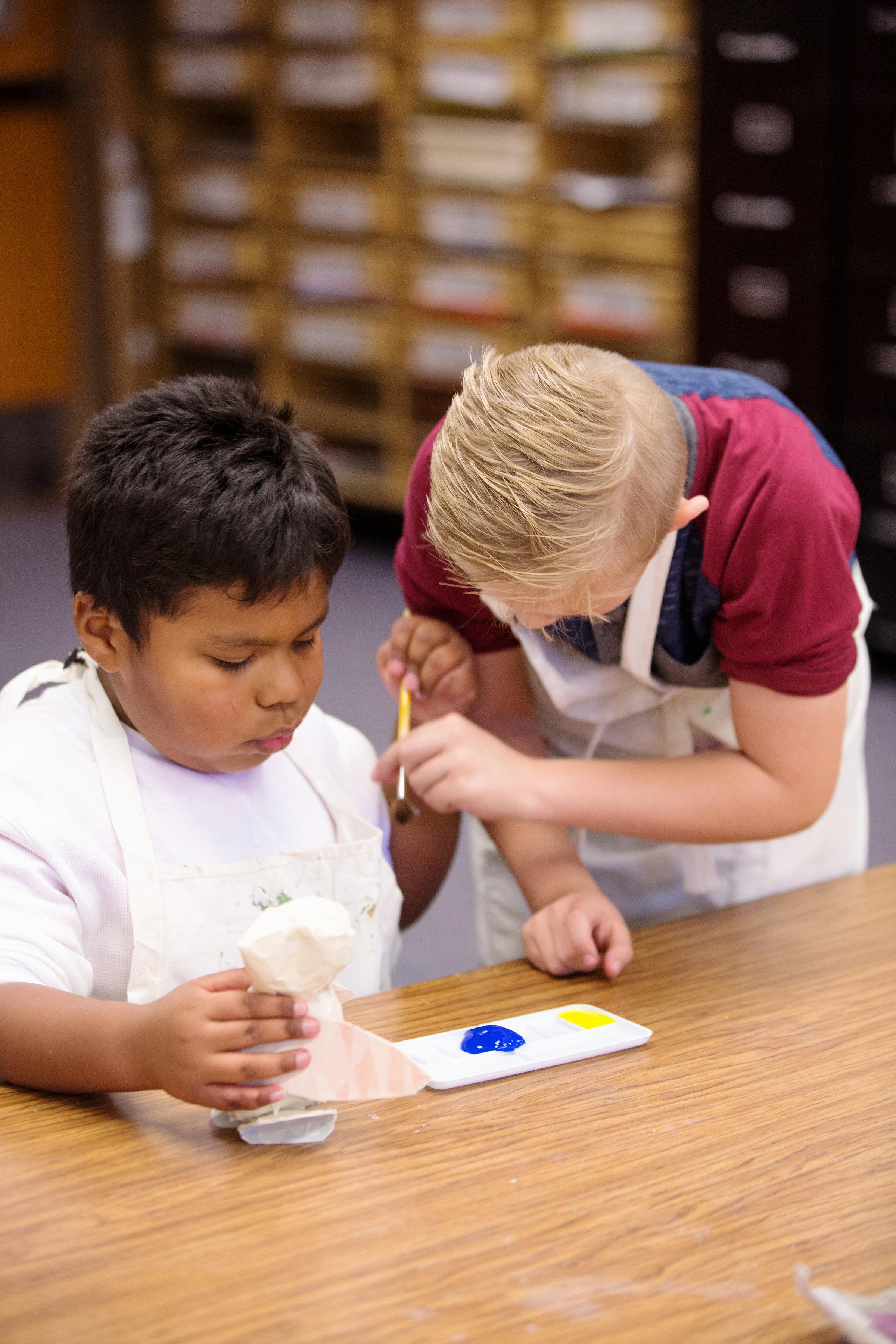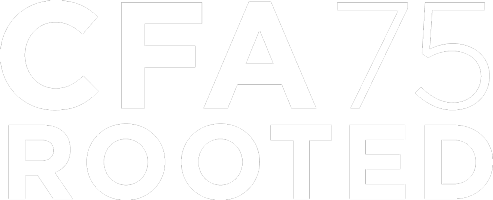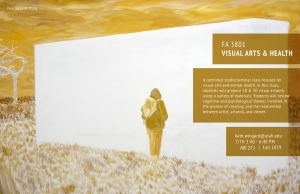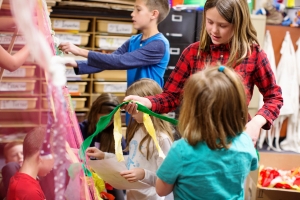Displaying items by tag: Teaching
by Anna Oldroyd
Kathryn Wingard is a ceramics MFA candidate within the department of Art & Art History as well as a licensed mental health counselor and registered art therapist within the U of U hospital system. This fall, Kathryn Wingard will again be teaching her special topics course, FA 3801 “Visual Arts & Health.” The course offers a unique intersection of visual arts and mental health.
In this combined studio/seminar class, students will be introduced to concepts related to cognitive and psychological elements. These concepts engage the visual arts, with a recurrent subtheme of relationships and empathy. The class will cover the idea of art making and viewing as (potentially) empathetic experiences involving relationships. These relationships include the artist’s relationship with artwork, the viewer’s relationship with the art, and the viewer/artist relationship.
Student Emily Comstock said “Kate’s Visual Arts and Health class was a consciousness-expanding and productively complex course that transformed my thinking about responding to art, art-making, and the nature of my own artistic practice. My experience was defined by a highly supportive and dynamic environment which integrated the very concepts of thinking and engaging with what we learned about.”
Students will produce 2D and 3D art with a variety of materials. They will review cognitive and psychological themes involved in the process of creating, such as the flux between order and chaos, gestalt, goal attainment, conflict resolution, problem solving, distress tolerance, and interpersonal effectiveness. They will also cover theories about the use of art as coping and art as confrontation. Concepts related to art as a mindfulness tool will be introduced to the artist and the viewer, as well as the somatic, visceral experience of engaging with art.
“This course has been my absolute favorite class,” said Eden Merkley, who was enrolled in last year’s Visual Arts & Health class. “Kate is incredibly student-centered and the material that we cover is interesting since it is widely applicable in the outside world; both personally and as an artist. It taught me how to have an open dialogue with artworks, and to value/see the importance of materials. This has helped me grow as an artist as I'm able to explore my intention for creating pieces.”
The course is open to all students, with or without fine art experience.
Course Catalogue: FA 3801 Special Topics in the Fine Arts; #15546, Sec 001: Visual Arts & Health
Date and Time: T/TH from 3:40-6:40 PM
Room: ART 273
Credits: 3 elective credits (unless approved for substitution of curriculum requirements)
Inclusive Arts Spaces
By Kelby L McIntyre
Since 2016, I have had the honor to work in collaboration with Jonathan Hale, CFA alum and BTSALP visual art specialist, John McDonald, and Kristen Paul from the Department of Special Education to investigate effective inclusive arts spaces. In August of 2018, Jonathan and I were invited to present our observations in Atlanta, Georgia at the Kenney Center’s Very Special Arts (VSA) Intersections: Arts and Special Education Conference, a Jean Kennedy Smith Arts and Disability Program. Through innovative, thought-provoking, and interactive sessions, the VSA Intersections Conference provides professionals in the intersecting fields of arts education and special education the opportunity to share current information in research, practice, programs, and policy, and serve as a leading catalyst for change.
Our presentation shared glimpses of student successes, strategies for utilizing peer partners, art room configuration, and specific art experiences (e.g. group weaving) that supported the implementation of an inclusive art classroom at Sprucewood Elementary.In Atlanta, numerous K-20 educators from across the country informed us that they were eager to learn more about how to effectively use peer partners in various spaces.
Jonathan and I presented specific visual art lessons that were utilized in the study. The learning experiences embedded in each lesson implemented the least restrictive learning environment for all participants. The structure of the art activities provided students the space and freedom to adapt lessons and encouraged them to problem solve as a community. Our work so far has confirmed that successful art inclusive practices rely heavily on empowering, nurturing, and establishing clear peer partner roles.
Observations
1. Universally designed collaborative art lessons:
• When lessons were designed specifically as group projects or when individualized projects included structured opportunities for partner work, art inclusion seemed to be more successful.
• When movement throughout the room during the lesson was permitted and established as a norm for the lessons in the study, student interactions increased. This structure also supported students that needed to move throughout the room during the lesson.
• The art lessons seemed to be easily adaptable and provided social opportunities that helped foster relationships between typically developing students and their non-typically developing peers.
• Peer partners communicated acceptance of their non-typically developing peers through interviews and surveys.
2. Collaborative table groups:
• Non-typically developing students increased their sustained attention to tasks when working with peer partners.
• Over time, peer partners learned how to adapt activities and were able to effectively work in collaboration with non-typically developing students.

During our time in Atlanta, we were afforded valuable opportunities to engage in national conversations with arts educators and professors surrounding equity, access, and inclusive arts spaces. These connections have helped further inform our investigations as we include music, dance, and theatre in the study.
Post presentation, the Director of Humanities for the Orange County Department of Education invited us to share our work summer 2019. Participating in the VSA Conference challenged and inspired us to continue the exploration and advocacy of pedagogical approaches that improve educational experiences for all students. Learn more about the Kennedy Center.




